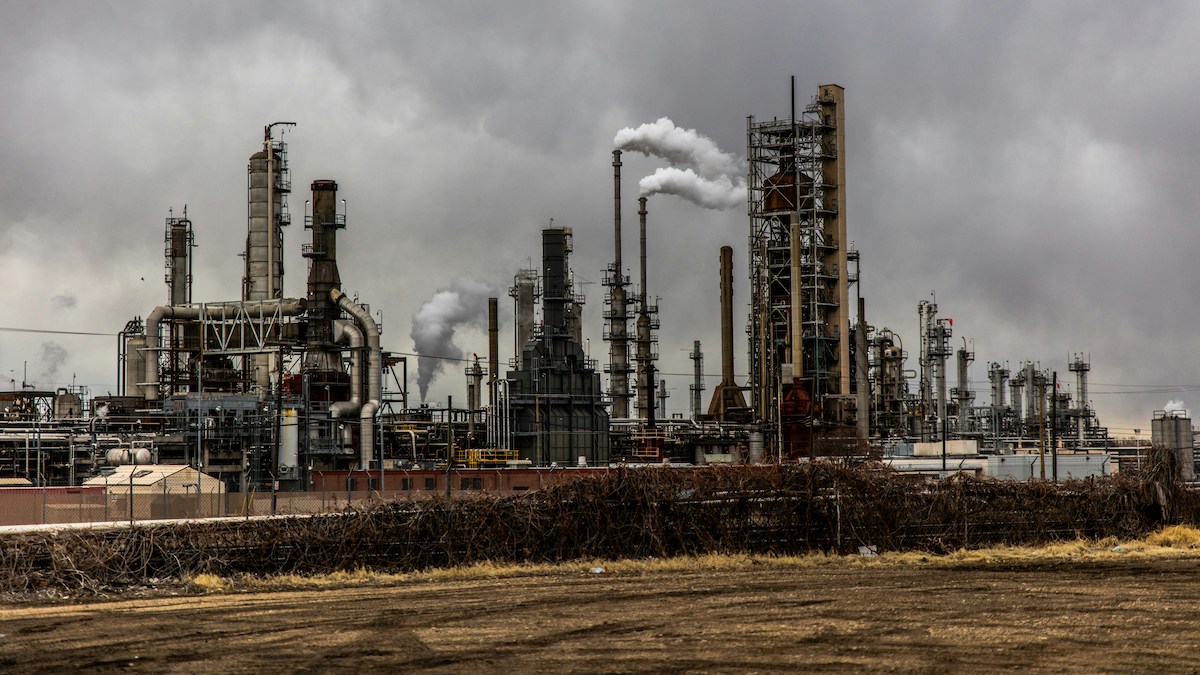Research & Developments is a blog for brief updates that provide context for the flurry of news regarding law and policy changes that impact science and scientists today.
The U.S. Environmental Protection Agency moved this week to reduce limits on fine particulate air pollution, including soot, set by the Biden administration last year.
The administration gave up defense of a rule which lowered the standard for air pollution particles measuring less than 2.5 micrometers in diameter, also known as PM2.5. The rule, which would have been fully implemented in 2032, took the standard from 12 micrograms of PM2.5 per cubic meter of air to 9. Such tiny particles, which come from vehicle exhaust, factories, and power plants, are especially harmful to human health because they can infiltrate the lungs and the bloodstream.
In 2024, EPA estimated the 9-microgram standard could prevent up to 4,500 premature deaths, 2,000 hospital visits, and 800,000 cases of asthma per year.
“An abundance of scientific evidence shows that going back to the previous standard would fail to provide the level of protection for public health required under the Clean Air Act.”
On 24 November, EPA asked the U.S. Court of Appeals for the D.C. Circuit to strike down the new standard, abandoning its defense against industry trade associations and attorneys general from conservative states that had sued Biden’s EPA over the rule.
In the court filing, EPA took the side of its challengers, stating the rule was created “without the rigorous, stepwise process that Congress required.”
“EPA now confesses error,” the filing said. Though the 9-microgram standard remains in effect currently, the EPA proposed in its filing that the standard revert to the 12-microgram rule finalized in 2020.
Environmental groups said the action undermines the agency’s obligations under the Clean Air Act. “EPA’s motion is a blatant attempt to avoid legal requirements for a rollback, in this case for one of the most impactful actions the agency has taken in recent years to protect public health,” Hayden Hashimoto, an attorney for the Clean Air Task Force, a nonprofit, told AP. “An abundance of scientific evidence shows that going back to the previous standard would fail to provide the level of protection for public health required under the Clean Air Act.”
Particulate air pollution disproportionately affects Black communities and other communities of color, as well as low-income groups. One 2018 study found that people living in poverty were exposed to 35% more PM2.5 than the overall population, and Black people were exposed to 54% higher amounts.
Related
• EPA to Abandon Air Pollution Rule That Would Prevent Thousands of U.S. Deaths
• Trump EPA Moves to Abandon Rule That Sets Tough Standards for Deadly Soot Pollution
• EPA: Health and Environmental Effects of Particulate Matter (PM)
• Some Communities Feel the Effects of Air Pollution More Than Others
• Get Involved: AGU Science Policy Action Center
In April, a coalition of public health and community groups wrote a letter to EPA Administrator Lee Zeldin asking him to quickly implement the strengthened standard. “There is no legally viable basis for weakening it,” they wrote.
“Our communities already carry the burden of polluted air and higher rates of asthma and heart disease. Weakening soot protections will only deepen these disparities and cost more Black lives,” Yvonka Hall, executive director of the Northeast Ohio Black Health Coalition, one of the groups that signed the letter, said in a statement.
The move to vacate defense of the rule is part of a broader rollback of regulations on industrial facilities by the EPA. Earlier this year, the agency proposed repealing requirements for polluting facilities to report their greenhouse gas emissions. The EPA is expected to propose its own PM2.5 rule early next year.
—Grace van Deelen (@gvd.bsky.social), Staff Writer
These updates are made possible through information from the scientific community. Do you have a story about how changes in law or policy are affecting scientists or research? Send us a tip at [email protected].


